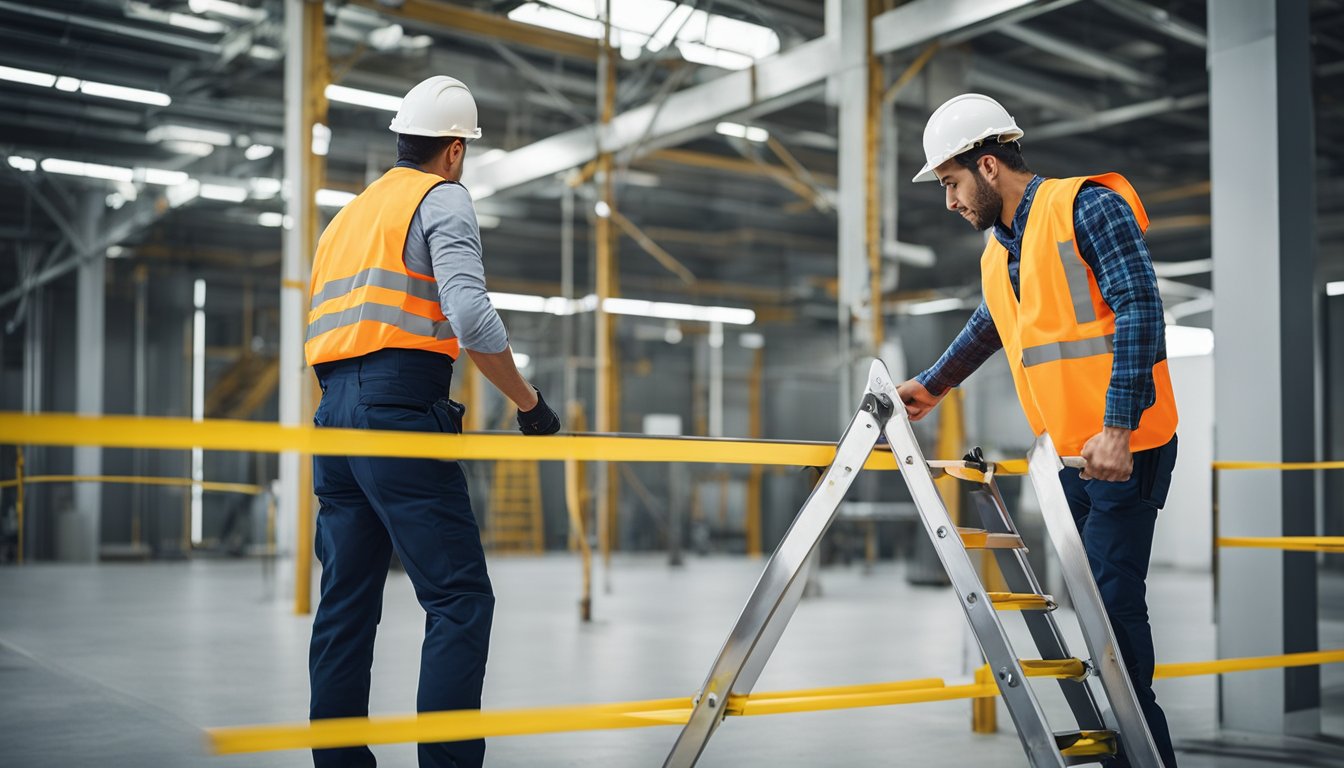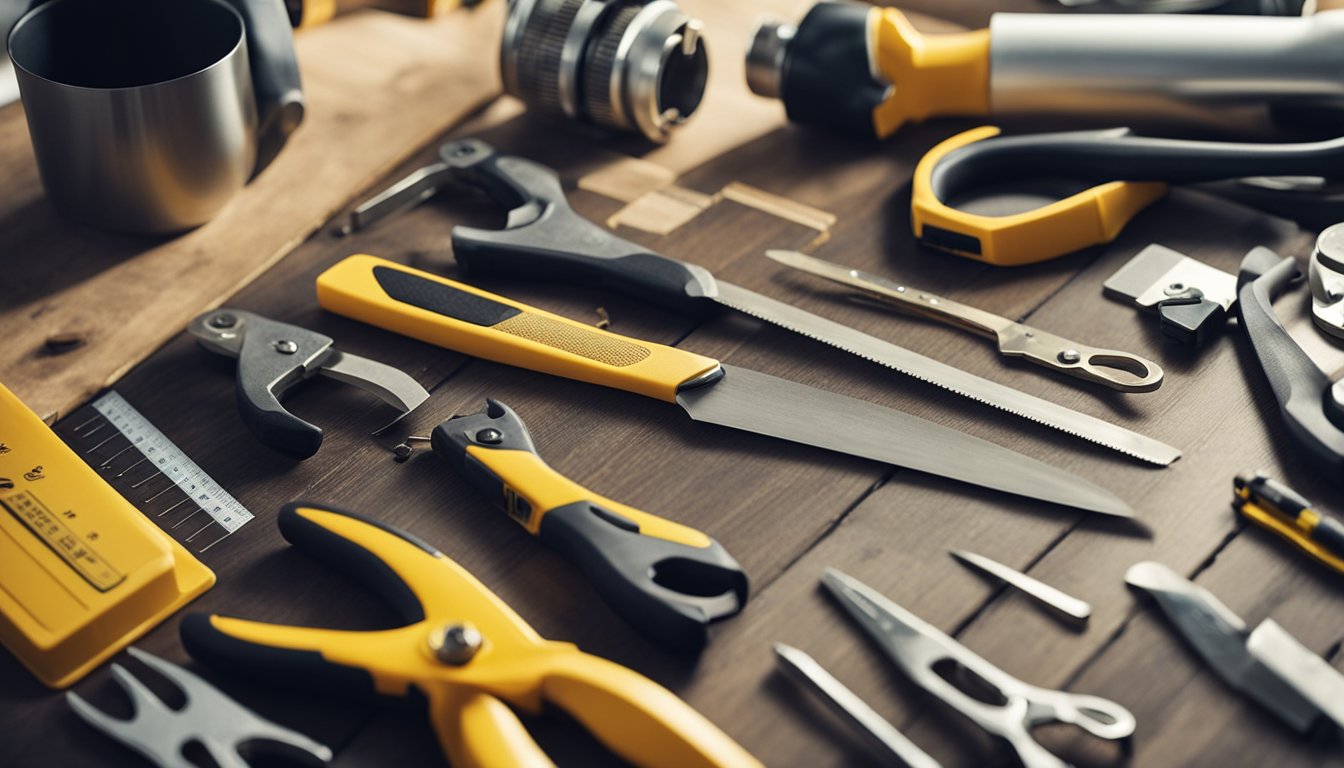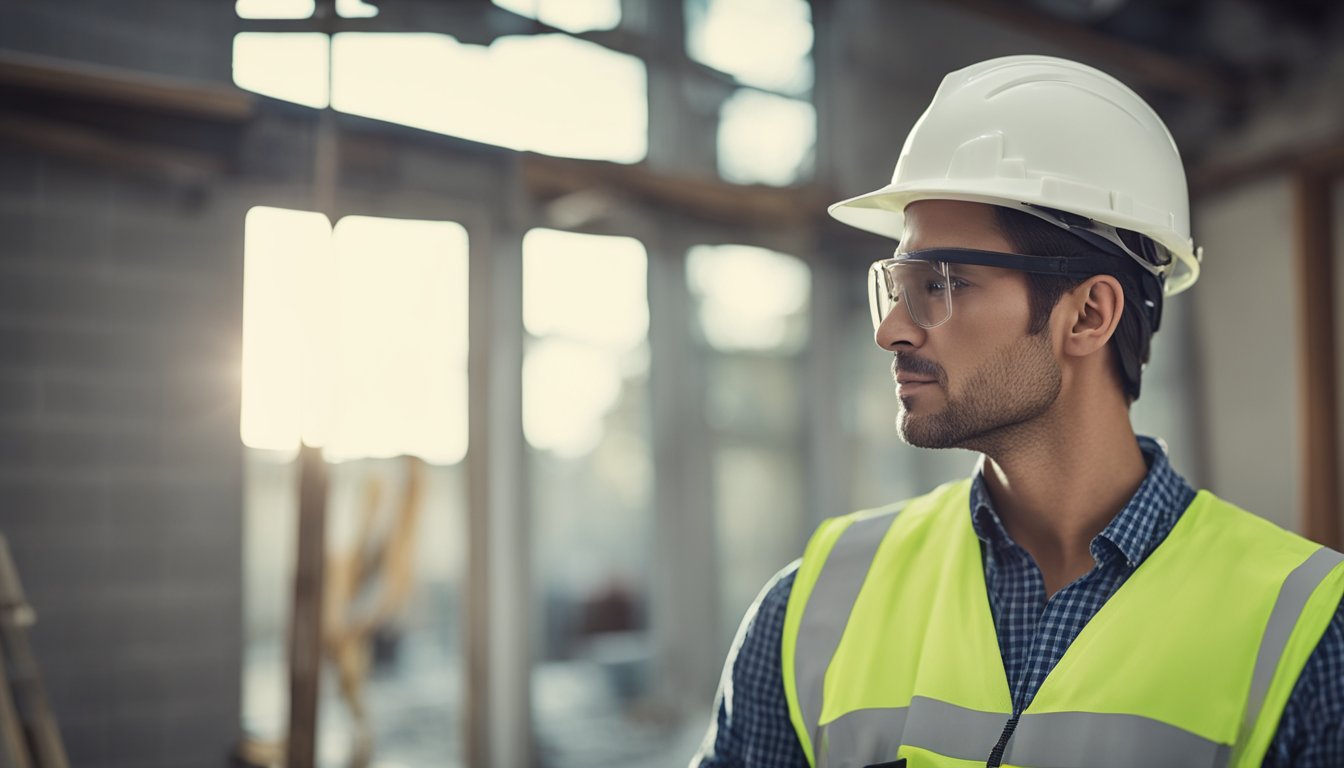Late updated: 07 Jul 2024 08:07
Written by: Daniel Harper
Maintaining Safety During Home Renovations: Essential Tips for a Secure Project
Renovating your home can be an exciting journey, but it also comes with its fair share of challenges, especially when it comes to maintaining safety. Whether you're a seasoned DIY enthusiast or a first-time renovator, ensuring your environment remains secure should be a top priority. By implementing proper safety measures, we can not only protect ourselves but also guarantee a successful renovation project.

Before we even pick up a hammer, planning is key. Proper preparation involves securing the structure of your home, establishing a well-thought-out safety plan, and ensuring good ventilation throughout the workspace. Even simple tools require cautious handling. With hazards lurking in every corner, from electric wires to heavy machinery, our focus must always be on staying safe.
During the execution phase, it's crucial to maintain good footing and use protective gear to prevent injuries. Keeping the work area clean and organised can significantly reduce risks. After the renovation, let's not forget the importance of thorough inspection and clean-up to prevent any lingering hazards. Staying safe during a home renovation isn't just about the right tools but also about a proactive approach to each step of the process.
Key Takeaways
- Safety planning is essential before starting any home renovation.
- Proper handling of tools and maintaining a clean workspace reduces risks.
- Post-renovation inspection ensures no hazards are left behind.
Planning and Preparation for Home Renovations

Effective planning and careful preparation are essential to ensuring a smooth and safe home renovation project. This includes understanding the legal requirements and selecting the right professionals to handle the job.
Understanding Legal Requirements
Before starting any renovation project, we must familiarise ourselves with local building codes and regulations. Most renovations require permits that ensure the work meets safety standards. Acquiring the correct permits can help avoid legal issues and ensure that our improvements are safe and compliant.
It’s important to check if a licensed professional is needed for specific tasks, such as electrical or plumbing work. Unlicensed work can result in fines and potential safety hazards. Also, reviewing the floor plan and ensuring it matches our intended changes can save time and prevent costly mistakes.
Consulting with a local building authority can provide clarity on what permits are necessary and any specific legal requirements for our area. Keeping an emergency plan in place during the renovations is also crucial for addressing potential safety breaches promptly.
Selecting the Right Professionals
Choosing the right professionals is critical to the success and safety of our renovation project. Hiring reputable contractors ensures that the work is carried out to a high standard and within legal requirements. We should look for contractors with good reviews, proper licensing, and adequate insurance coverage.
Clear communication with our selected professionals is key. Outlining our plans, expectations, and budget helps avoid misunderstandings and ensures everyone is on the same page. It's also wise to discuss eco-friendly options to make our renovation sustainable.
Establishing a contract that includes project timelines, costs, and detailed descriptions of the work to be performed can mitigate risks and set clear expectations. By prioritising open communication and choosing reliable professionals, we maximise the safety and success of our renovation efforts.
Executing the Renovation Safely

Renovating your home should prioritise personal safety, handling hazardous materials with care, and maintaining clean, breathable indoor air. These measures will protect everyone involved, including children and the elderly.
Ensuring Personal Safety On-site
Maintaining personal safety on-site begins with wearing appropriate safety gear. Essential items include safety glasses, earplugs, hard hats, and work boots. It is critical to keep a first-aid kit within reach.
When using power tools, always follow the manufacturer's guidelines for tool safety. Ensure that ladders are stable before climbing, and avoid overreaching. Secure any barriers to restrict access to hazardous areas, particularly for children and the elderly.
Clothing should be snug but comfortable, avoiding loose garments that could get caught in machinery. Regular breaks are important; fatigue increases the risk of accidents. Always stop if you start feeling too tired.
Dealing with Hazardous Materials
Dealing with hazardous materials such as lead, asbestos, and certain chemicals requires careful handling. Before starting any demolition, check for the presence of these substances. If found, professional removal is often necessary.
When removing or renovating areas with potential lead-based paint, use masks or respirators to prevent inhaling dust. Similarly, when working with materials like mold or asbestos, full protective gear is necessary. This includes gloves, impervious clothing, and eye protection.
Proper disposal of hazardous materials ensures a safe environment. Always follow local regulations for hazardous waste disposal. Clean up carefully; leftover materials can be a safety hazard.
Maintaining Indoor Air Quality and Ventilation
Keeping indoor air quality high during renovations involves reducing dust and volatiles that can harm health. Use air purifiers and air filters to capture dust and particulates. Keep windows open to ventilate the area, especially when using substances like paint, varnish, or glue.
Installing temporary carbon monoxide detectors and smoke detectors is smart for immediate hazard alerts. These detectors help monitor air quality during activities like sanding, spray painting, or working with VOCs.
Prevent build-up of noxious fumes by investing in exhaust fans and ensuring all rooms are well ventilated. Regularly inspect ventilation systems and air purifiers to keep them in working order. These steps will help maintain a healthier living space during your renovation.
Frequently Asked Questions
In this section, we address common safety concerns during home renovations, such as personal safety practices, health risk reduction in older properties, and maintaining daily life while undergoing construction.
How can one ensure personal safety during DIY home renovations?
We recommend wearing the appropriate safety gear, such as gloves, safety goggles, and helmets. Always turn off utilities before starting work on electrical or plumbing systems. Keep a well-stocked first aid kit nearby for any minor injuries.
What steps should be taken to minimise health risks when renovating an older property?
Older homes often contain hazardous materials like asbestos or lead paint. It's crucial to have the property inspected for these substances. Enlist professional help for safe removal and ensure proper ventilation during the renovation to avoid inhaling harmful particles.
What are the key safety precautions for living in a home during its renovation?
Isolate the construction area with plastic sheeting or temporary walls to keep dust and debris contained. Make sure all family members are aware of and avoid active work zones. Regularly check that fire alarms and carbon monoxide detectors are functioning.
How can the cleanliness of the house be maintained amidst ongoing renovations?
Frequent cleaning can help manage dust and dirt. Use high-efficiency particulate air (HEPA) filters in your vacuum and air purifiers. Create a designated pathway covered with protective material to minimise dirt spread.
What strategies are effective in managing stress throughout the renovation process?
Keeping a consistent routine and setting realistic expectations can reduce stress. Regularly communicate with all contractors to stay informed about the project's progress. Taking occasional breaks away from the renovation site can also help in maintaining mental health.
How should renovation work be planned to ensure the safety of both inhabitants and workers?
Plan the renovation in phases to minimise disruption and maintain clear escape routes. Ensure all work complies with local building codes and safety regulations. Hold regular safety meetings with all involved to address any concerns promptly.
